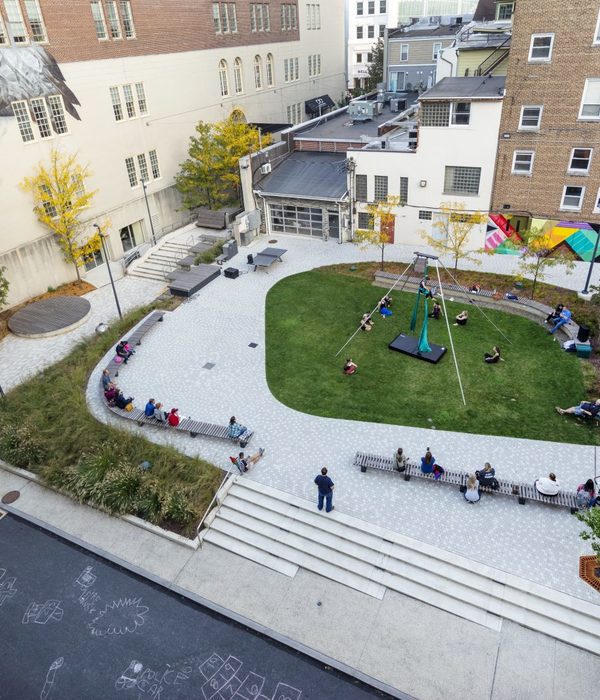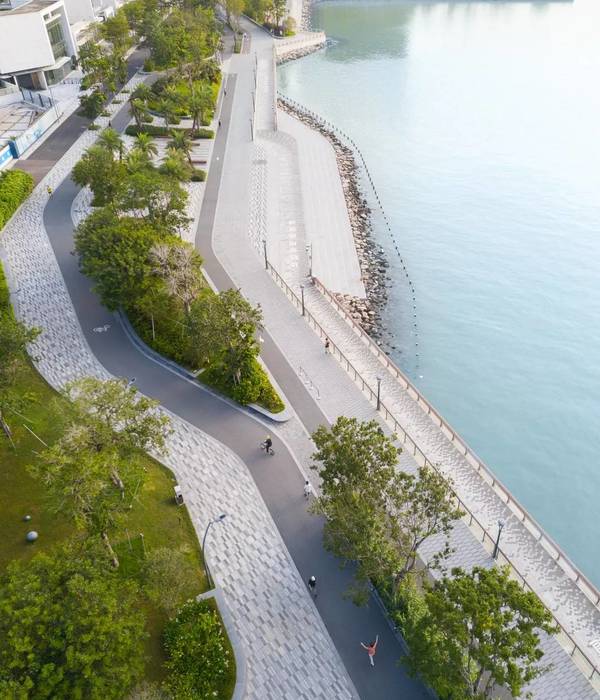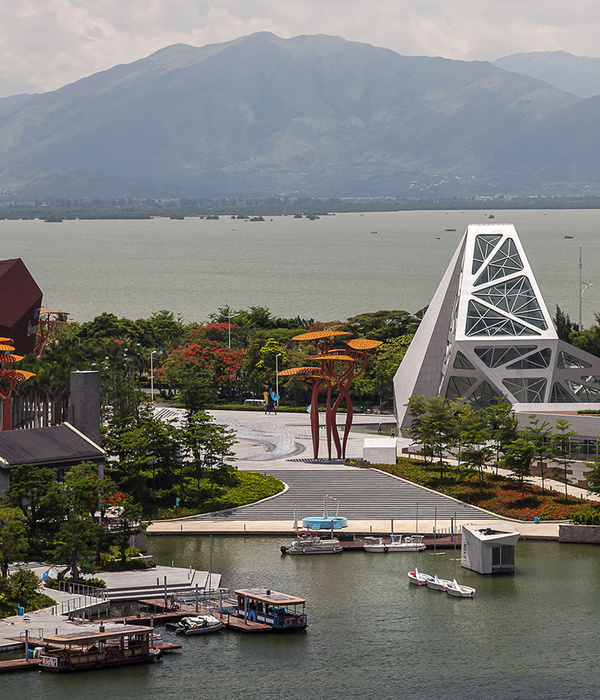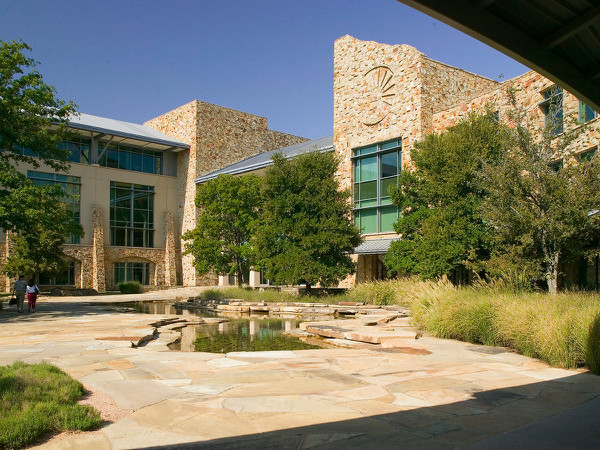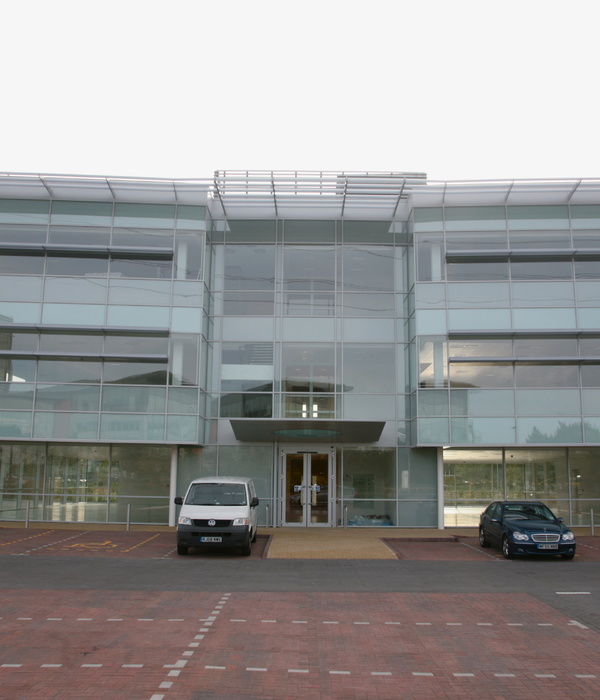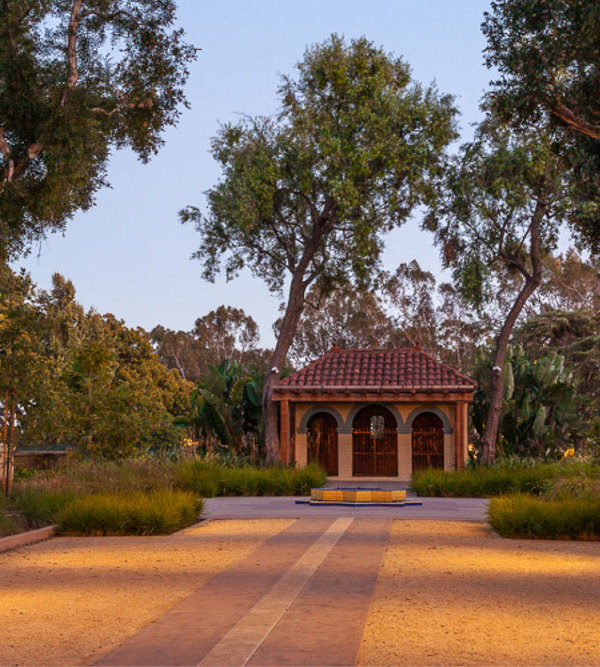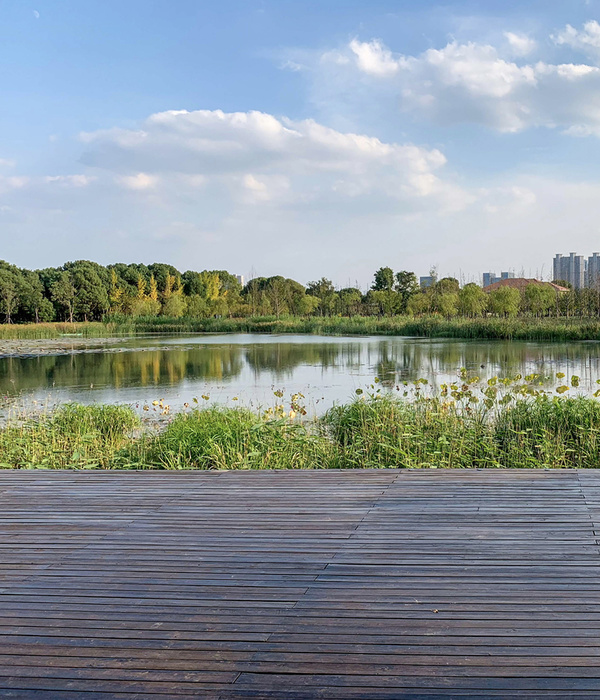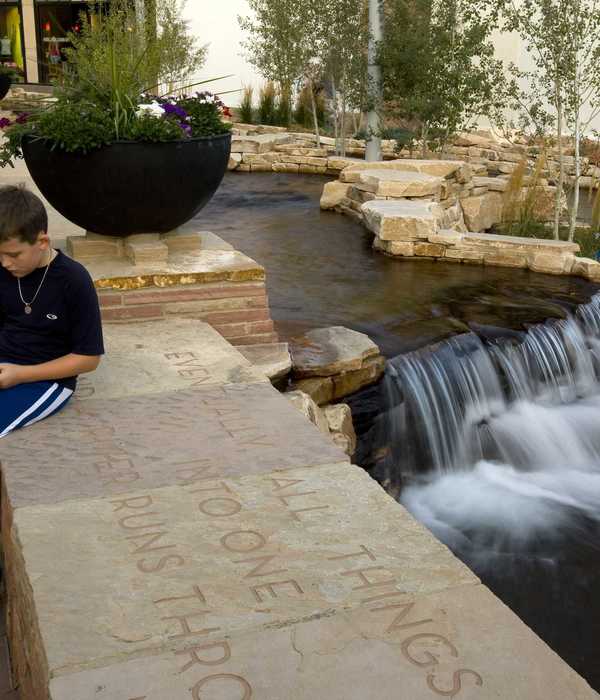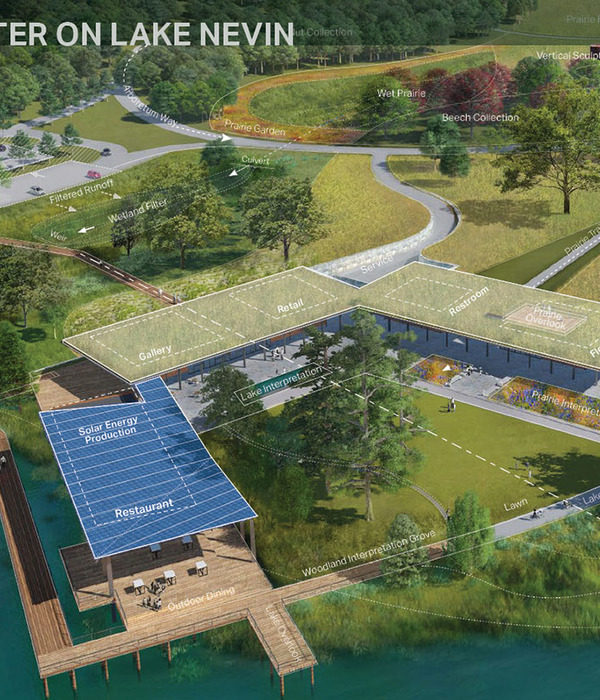近些年来,随着新型城镇化和乡村振兴战略实施,中产阶级受到交通、住房、环境等“城市病”的影响,想要向外伸出触角;同时,留在乡村的传统农耕人口,还在延续传统的生产与生活。袈蓝建筑作为乡村建设的观察者和参与者,正在通过每一个在乡村发生的项目,尝试链接这两种不同的生活方式,通过在空间规划和内容植入的角度进行设计,创造在乡村中城乡融合的新生态。探索从城里到城外的区域变化趋势,催化出一种当代社会背景下的新的空间与社会生活构造体系。“天府新兴·和盛田园东方”是一次基于田园场景中的新田园主义哲学的空间实验。
In recent years, with the implementation of new urbanization and rural revitalization strategies, the middle class has been affected by “urban diseases” in areas such as traffic, housing, the environment, etc. At the same time, the traditional way of life of farmers in the countryside lingers, maintaining time-honored methods of production and healthy liveliness.SYN Architects acts as an observer and, simultaneously, takes part in the process of rural construction, linking two different lifestyles in projects developed in non-urban areas. By means of precise spatial planning and content implementation techniques, the firm designs and creates new ecosystems of urban and rural integration in the countryside.The “Tianfu Xinxing – Hesheng Pastoral Oriental” Pastoral Complex is a spatial experiment based both in the philosophy of New Pastoralism and idyllic countryside scenes.
▼“天府新兴·和盛田园东方”田园社区远景,distant view of “Tianfu Xinxing – Hesheng Pastoral Oriental” Pastoral Complex
▼已建成部分-和盛书院与田园生活馆鸟瞰,completed parts-Hesheng Academy and Living Quarter
天府新区是四川省下辖的副省级新区,2014年正式获批为国家级新区,以建设新理念花园城市为目标,由成都片区和眉山片区两部分组成。本项目位于天府新区成都片区,是当地乡村旅游发展的重要延伸区域。新兴街道自北向南,紧邻国家级4A景区三圣乡、白鹭湾湿地公园、蓝顶艺术村,南部与紫颐香薰山谷接壤,西部、东部正在建设的物流园区、产业园区等,都为该区域的乡村升级发展提供了得天独厚的周边协同条件。同时正在建设,预计2020年投入使用的成都天府国际机场也为该区域的商务型发展定位奠定了需求基础。
Tianfu’s New Area is a new subprovincial district under jurisdiction of the Sichuan Province. In order to build an innovative garden city, it was officially approved as a district in 2014. It consists of two parts: The Chengdu Area and the Meishan Area.TheDemonstration Project is actually located in Tianfu’s New Area. The zone in itself is an important extension of local villages proposed for tourism development. Xinxing Avenue extends from north to south, very close to the Sansheng Flower Village, a scenic area graded 4A by the Chinese authorities. The southernareasof Egret Bay Ecological Wetland Park, and Blue Roof Art Village border withZiyi Fragrant Valley. To the West and the East, industrial and logistics parks are under construction. All of these provide excellent conditions for the development or rural areas in the region. Chengdu Tianfu International Airport is also under construction in the region, and it’s expected to start operations in 2020, adding up to the foundations that will allow further economic development.
▼区位关系,location
在成都,川西林盘是指小的聚落组团,村民们小到三五户,多到十几户,散落在农田里面。这是有着自然风貌的村落居住方式的一种演变。项目所在本身是原有的村集体建设用地。通过这次规划与实践,激活成都近郊能量,形成对城市的重要补充。现在,这里既有原住民,新住民,还会有常常想要造访的人。规划后的项目,不仅带给村民崭新的生活方式和发展可能,还给村民整理出了更多的生活、生产使用空间和面积。2018年,项目最先完成了乡村社区部分的村落新民居建设。村民可以选择自营,也可以出租给别人用,靠着租金,就能够生活的很好。保留了宅基地,改善了居住环境和居住条件的同时,又解决了原著居民的家门口的持续增收。
▼“和盛田园东方”田园社区鸟瞰,aerial view of Hesheng Pastoral Oriental residential community
Linpan refers to a small settlement group scattered across farmland in Chengdu, Western Sichuan.This is the next step in the evolution of village lifestyles, a unique kind of progress that preserves the beauty of natural landscapes.The project sits on the construction area of the original collective of villages. Through detailed planning and thoughtful execution, the area activates the energy of Chengdu’s suburbs and provides a significant complement to the city. From now on, the original inhabitants as well as newcomers will always have people they want to visit more often. Projects to be developed after the planning phase is complete will provide a new lifestyle and improvement possibilities to the villagers, incrementing the area of both their living and production spaces. In 2018, the project’s first completed structures were residential buildings in several areas of the rural community. Here villagers can choose to start a business of their own or rent their properties to others. With rent only, they can lead a more than comfortable life. The foundations were kept entirely, while the environment and living conditions were significantly improved. Even more, the project provided a better income for the original residents of the region.
▼项目最先完成了乡村社区部分的村落新民居建设,the project’s first completed structures were residential buildings in several areas of the rural community
袈蓝以空间与时间与人的认知共同发展的哲学思考区域规划。认为:“现在的建筑是给100年以后的人看的,现在的乡村也是。现在做的乡村里的项目,只要是人们喜欢的,实现了把人留住,把当地人留住乐业安居,未来的人再看,它就是这个时候的乡村。” 用现代的办法,解决现在的事情。符合空间的特性,以及与时俱进的使用的需求,适合现在的,在未来,就是能被保留下来的。同时,在这样的规划中,设计需要克服表现欲,形态上的表现力不是最重要的。袈蓝建筑的设计团队在规划中选择了延续项目原有的空间基底,把机理调整和聚落整合作为表达方式,着力于从整体角度呈现出一个全新的面貌。
At SYN Architects, we plan from a philosophical perspective that postulates a cognitive co-development strategy between space, time and people. We believe that today’s buildings are meant to be seen by people 100 years from now, and the same applies to these villages. That is to say, as long as people like the projects for the villages, they will stay to live in them, enjoying a productive life with the right amount of quality leisure activities. And in the future, when people look at the villages, they will see them as magnificent as they are today. We solve present problems with a modern approach, create features according to the space involved, and keep up with the times. We also provide answers to the present, so they can be preserved for the future. At the same time, such planning requires design to overcome desire of expression, as the outline of individual forms by themselves is not the most important factor. During the planning phase, SYN Architects decided to preserve the groundwork of the original project, and integrate adjustment mechanisms to grant the settlements with a unique form of expression that comes from a holistic perspective.
▼已完成的田园社区-设计需要克服表现欲,completed residential buildings-design needs to overcome the desire of expression
▼已建成的和盛书院与田园生活馆-建筑手法简洁而现代,completed Hesheng Academy and Living Quarter-simple and modern approach is applied
袈蓝建筑根据一个相对成熟的产业模型对整体示范区进行规划设计。根据市政道路切出来的现状,把整体示范区划分为“爱尚田园”、“乐活田园”以及“创智田园”三个主要分区。爱尚田园板块是文创集群和集中消费场景,更像是一个田园之间的公共客厅;乐活田园板块是进行大型户外活动的主力游乐与休闲区域,同时解决近市区的亲子、家庭为主的周末户外娱乐需要;创智田园板块则是未来的长租物业,属于集体建设用地上的田园办公组群,对接天府新区整体未来发展中对于商务配套的缺口。
SYN Architects divided the Demonstration Area in three zones defined by municipal roads: The Live Style Zone, the Lohas Zone and the Pastoral Business Community. The Live Style Zone presents visitors with a cluster of creativity and culture, as well as an area prepared for consumers.It can be considered the public area of the complex. The Lohas Zone provides a vast space designed for amusement and leisure outdoor activities. Furthermore, this zone satisfies the outdoor entertainment needs of families in the urban area. Finally, the Pastoral Business Community is the answer to long-term property rental. It belongs to the constructions destined to work as pastoral offices for the support of business activities that will contribute to the development of Tianfu’s new area.
▼效果图-“天府新兴·和盛田园东方”规划效果图,rendering- “Tianfu Xinxing – Hesheng Pastoral Oriental” planning
爱尚田园版块是整个项目的心脏,总占地6.54公顷,建面约1.4万平方米,主要功能为商业零售、商务交流、文化艺展,其中包含大型会议、学术论坛、艺术展览、田园剧演、沙龙秀场等。整体项目的智慧中心“和盛书院”是一个非常有趣的嵌套式建筑,在现代的建筑外观之内,包裹着一个完整的老房子。是和盛家园的董事长胡林先生从邛崃老家用原宅拆移复建的方式,搬到这里的老宅。在袈蓝建筑介入之前,考虑自住或者发展为精品民宿。但在对于整个区域进行观察与思考之后,袈蓝给它重新定义了功能,通过以“书院”为核心并延展出一个强文化属性的生活馆,将这个不能动的宅子改造成立成都地区乡村振兴产业的“发声场”。在对建筑的调整中,设计师选择了不破与大破的处理方式。既然任何一种建筑语言和符号都跟这个老房子不搭,干脆拒绝符号,以最简单纯粹的空间处理手法,在老房子的顶部加横板,成为一个露台,和田园生活馆之间,以几条简单的横线,融成一体。新旧融合共处。
The Live Style Zone is the heart of the whole project. With a total area of more than 65,000m2 and a construction area of approximately 14,000m2, its main functions are commercial retail, business communication, culture and art exhibition, as well as large-scale conferences, academic forums, art exhibitions, fashion shows, etc. The center of wisdom of the whole project, the Hesheng Academy, is located in this zone.Surprisingly enough, there is an old house hidden in the project. It belongs to the client, Mr. Hu Lin, Chairman of Shengjiayuan. He ordered it to be disassembled, “moved” and rebuilt on this location. Mr. Hu considered either to live in the house or to develop it into a first-class bed and breakfast. But after careful observation and deliberation about the zone as a whole, SYN Architects redefined its functionality, placing the “Academy” at the core and extending the strong cultural attributes of the residence, to transform it into an example of revitalization of Chengdu’s rural areas. Regarding adaptations to the building, the designer chose to produce a breakthrough without parting from the original structure. Given that most architectural languages or symbols do not match with this old house, the designer simply refused all symbols. In a simple and spatial way, a horizontal plate was added to the top of the old house to create a terrace that integrates into the surrounding pastoral environment by continuation of a few simple lines, thus blending the old with the new.
▼和盛书院,Hesheng Academy
▼老房子的顶部加横板成为一个露台,和田园生活馆之间以几条简单的横线融成一体,新旧融合共处,a horizontal plate was added to the top of the old house to create a terrace that integrates into the surrounding pastoral environment by continuation of a few simple lines, thus blending the old with the new
和盛书院中间是一个类似四合院一样四面围合的院落,设计师通过改造将它变成一个中心讲堂。院落的上方以高耸的天井封闭,塑造出空间的仪式感。同时顶部选择透光天窗处理,让室内与外部自然环境形成连接,通过自然光线的变化,在封闭的空间内又创造出自由与开放的体验。项目的主持设计师邹迎晞先生认为,在田园综合体项目中,建筑本身是可以弱化的。重要的是建筑体里面的活动,例如文创和田园美学的呈现,这时的建筑相当于一个文化的容器一样。
The center of the Hesheng Academy is very similar to a Siheyuan, a courtyard surrounded by structures on all four sides. Here, the designer turned the space into a central lecture hall. The towering upper part of the courtyard is an enclosed space that creates a ceremonial atmosphere. Furthermore, the ceiling presents a skylight, establishing a connection between the interior and the external natural environment. In this way, changes in natural light create a free and open experience in a closed environment. Mr. Zou Yingxi, main designer of the project, believes that in a pastoral complex, buildings can be “weakened.” What matters is the activity that takes place inside the buildings, for example, to portray culture, creativity and pastoral aesthetics. From this point of view, buildings are cultural containers.
▼和盛书院中间类似四合院一样四面围合的院落被改造为一个中心讲堂,the center of the Hesheng Academy is very similar to a Siheyuan, a courtyard surrounded by structures on all four sides. Here, the designer turned the space into a central lecture hall
▼院落的上方以高耸的天井封闭,塑造出空间的仪式感,the towering upper part of the courtyard is an enclosed space that creates a ceremonial atmosphere
▼中央红砖天井,central red brick patio
目前书院和生活馆的建筑部分已经完成,商街、大讲堂、水上宴会厅部分仍在建设中,预计2019年的下半年或者2020年初全部建成。届时,项目将整体形成一个连贯的乡村聚落。
At present, construction of the college and living quarters have been completed. However, the commercial street, the lecture hall, and the floating ballroom are still under construction. These are expected to be completed in the second half of 2019 or early 2020. By then, the project will form a coherent and integral rural settlement.
▼书院外围局部,part of the academy periphery
▼书院夜景,night view of the academy
▼生活馆夜景,night view of the living quarter
乐活田园版块总占地约242亩(其中阿狸主题乐园占地135亩,乐活商业区占地107亩),建筑面积约9200㎡,主要功能为田园嘉年华、亲子游乐、自然教育等,呈现内容紧密围绕城乡融合对接,关注优质农产品的城市对接,传统工艺的创新转化与展示。同时创造出寓教于乐的空间基底,为自然中的教育体验与亲子互动提供场景。
The Lohas Zone covers an area of approximately 16.1ha, of which, 9ha belong to the theme park area. The construction area is 9,200m2 and is mainly used to hold pastoral carnivals, develop family activities or educate people about nature. The content presented promotes the integration between rural and urban areas, connecting quality agricultural products with urban ports and innovating and displaying traditional crafts. At the same time, the complex provides a space for teaching and learning, a unique educational experience to grow as a family and learn about nature.
▼乐活田园鸟瞰,aerial view of Lohas Zone
▼市集文化广场,plaza of culture market
创智田园版块总占地750亩,建筑面积约63000㎡,以田园式、低密度的工作和生活环境吸引成都本地文创、科创、农创企业的新农人,为其提供智能共享的办公环境。共享办公区域和单体办公区域整体规划设计,每个地块的建筑本身是一个整体的同时,又形成原始村落的围合;几个单体办公区域就是一个小组团,组团与组团之间保持一定的距离,即保留了传统乡村建筑布局特点,同时解决了自然通风、采光、环境不相融等问题。目前区域内已经引入袈蓝公社、袈蓝咖啡作为服务配套,为未来进驻的新农人办公集群进行服务。目前示范区仍在同步建设阶段,但可以预见,这片种下了全新功能、精神、场景与审美力的川西林盘,将持续的为居住者和造访的人们,提供更多不同以往的城乡融合体验。
ThePastoral Business Community covers an area of 50ha, with a construction area of approximately 63,000m2. The local work and living environment attracts people from Chengdu specializing in cultural, technological and agricultural innovation, to become new farmers and work from a shared, smart office environment. The overall planning and design of both shared and single office areas parts from the concept of holistic plots of land that form an enclosure for the original village. Single offices are structured into small groups, and certain distance is kept between groups, to retain the original layout of the rural architecture. This approach also solves problems such as lack of natural ventilation or lighting and environmental incompatibility. SYN Architects has introduced SYN Community and SYN Coffee into the region as a service package, to satisfy the needs of the new farmers that will work from the office cluster in the future. Today, the Demonstration Area is still at the stage of simultaneous construction, but the seed of new features can already be felt in the spirit, scenery and aesthetics of Linpan. Such features will continue to provide occupants and visitors with a unique experience of harmonized rural and urban integration.
▼效果图-创智田园建筑内部,rendering-The Pastoral Business Community building interior
▼效果图-创智田园区域,rendering-The Pastoral Business Community
{{item.text_origin}}

